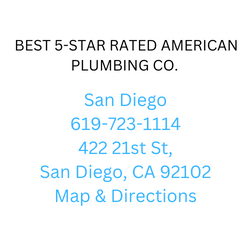Training Time Needed to Become A Plumber
The time it takes to Become a journeyman plumber depends on if it is a union shop or a nonunion shop.
How long does it take to train as a plumber? Most plumbers obtain their training through an apprenticeship, which usually lasts two to three years. The P.H.C.C. here in San Diego.
It depends on the plumber if he chooses to acquire more skills. Like in air conditioning. Etc.

Apprentice Plumbers Learn in Class and On The Job Training
Apprentices pick up skills on the job while being supervised by an experienced journeyman plumber who serves as their instructor.
Additionally, they attend classes, which may be scheduled concurrently with on-the-job training or in the evening. For their training, apprentices are compensated on a sliding scale. Their compensation and benefits rise as they gain experience.
Prospective plumbers must be of legal age and possess a high school diploma or equivalent to apply for an apprenticeship. They may also be required to pass a background check and an entrance exam. Apprentices may be assigned an employer if accepted into a program or may be required to locate employment independently.
Apprentices learn how to use and maintain their tools safely in the classroom. Additionally, they get up skills in soldering. In the classroom, emphasis is also placed on plumbing job preparation and workplace safety.
Training in mathematics is required to measure pipes and compute the materials required for pipe layouts is a part of this. Additionally, students pick up skills for drafting piping diagrams, deciphering technical drawings, and reading building blueprints.
Apprentices put their classroom knowledge on how to use the plumbing code book into practice by using the code book for sizing gas and water drain systems in the workplace by installing and repairing plumbing, gas, and drainage systems in various building types.
Apprentice plumbers learn to use different types of power tools
They practice soldering and altering pipes using pipe cutters and threading machines. They learn to cut holes in floors and walls for pipes and fittings with a hole-hawg drill. I prefer a right-angle drill. It does not have such a big kick or can give you a big kick in the hole-hawg drill.
Apprentices completing their apprenticeships successfully can start working as journeyman plumbers.
Conclusion.
Becoming a professional plumber typically requires a substantial investment of time in both formal education and on-the-job training.
Most aspiring plumbers start their journey by attending a technical school or community college, where they undertake a plumbing course that typically lasts 1-2 years.
After completing this initial training, they usually undergo an apprenticeship program lasting 4 to 5 years. During this apprenticeship, they work under the supervision of an experienced plumber to gain hands-on experience and develop their skills.
Therefore, becoming a proficient plumber usually takes about 5 to 7 years of combined education and practical training. The time may vary based on the region, specific regulations governing the profession, and an individual’s prior experience and aptitude.

